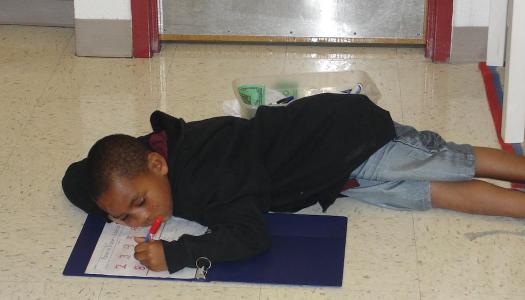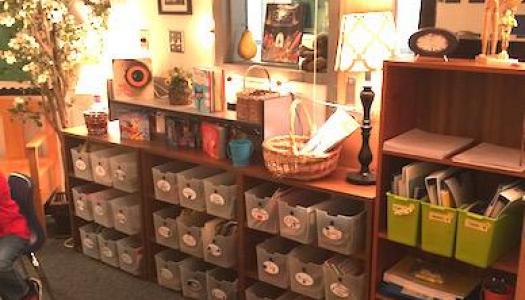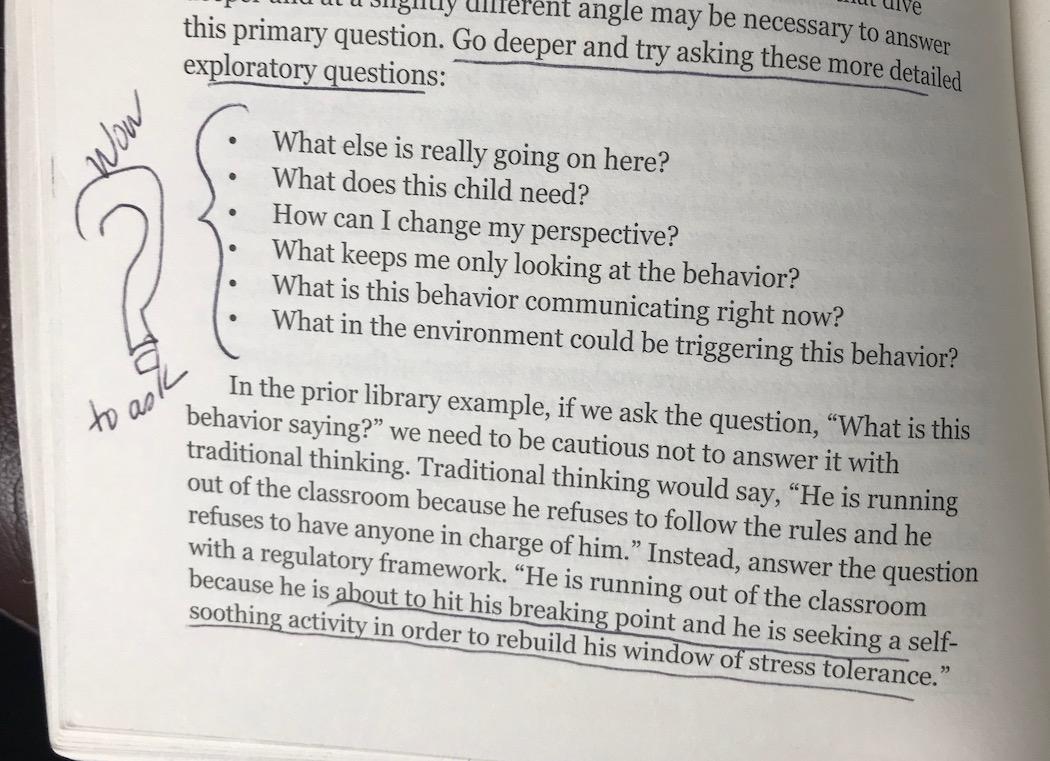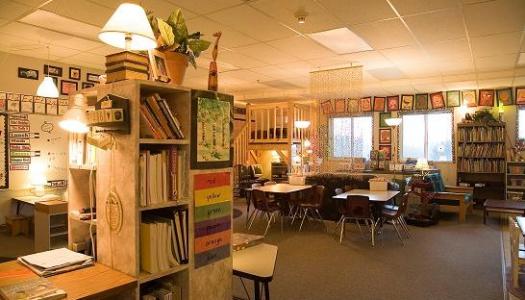Page-Turners—Summer-Themed Picture Books
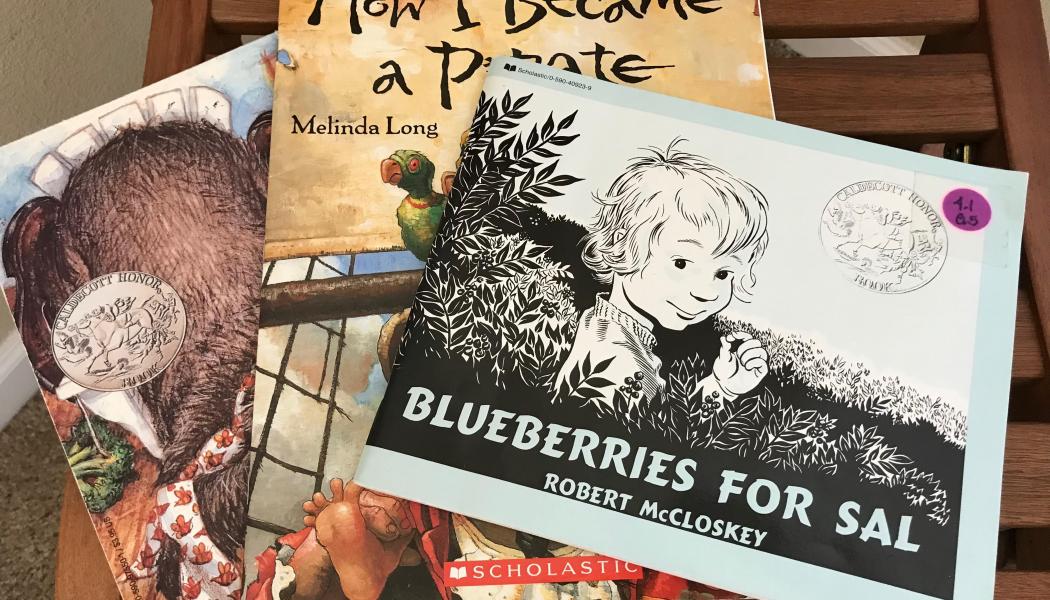
Blueberries for Sal by Robert McCloskey—This gentle, 1949 Caldecott honor book is just as good today as it was 70 years ago. Anyone who has picked berries with a child will be able to appreciate the kind of “help” little Sal is to her mother.
Harry by the Sea by Gene Zion is another oldie but goodie. Harry, a white dog with black spots, gets lost, mistaken for a sea creature, and then gets found again in this happy addition to the Harry series.
The Relatives Came by Cynthia Rylant—Anyone who doesn’t have a big family reunion to attend can take this road trip and be welcomed vicariously into this big, boisterous, loving family.
Fireflies by Julie Brinckloe—This book can be used to teach many reading strategies, serve as a mentor text for writing, or just be enjoyed as is.
Tops & Bottoms is a tale adapted and illustrated by Janet Stevens and is a 1996 Caldecott honor book. Students will enjoy predicting how the hungry, industrious rabbit will continue to outsmart the lazy, greedy bear.
The Bear on the Bed by Ruth Miller is a romping rhyme that is perfect for kindergartners and early-first graders. It’s fun to read aloud, but be warned: it ends with poop.
How I Became a Pirate by Melinda Long—Jeremy Jacob is at the beach with his family when he gets recruited to be a pirate. The story is fun, and the illustrations by David Shannon are really funny. Be sure to look for my favorite pirate, who has two eye patches and alternately lifts them up to see.
Wet Dog! by Elise Broach has bigger-than-life illustrations by David Catrow and is a fun, ridiculous romp with rhythmical text that begs to be read aloud.
Scaredy Squirrel at the Beach by Mélanie Watt is a great addition to this fun series. Scaredy Squirrel is afraid of everything at the beach, so he makes his own. A quick trip to get a shell that will let him bring the sound of the ocean home is how his real beach adventure begins.
Max at the Seashore by Liz and Kate Pope. Some of you are going to read this little board book and wonder why in the world I included it. If you don’t teach small moments in writing workshop, you probably won’t want it. If you do teach small moments, you are going to like this for a mentor text. Small-moment stories can be hard to find, and this one fits the bill.
1,2,3... by the Sea by Dianne Moritz is filled with rhyming pairs of vocabulary to tune in to. Flapping snapping. Lying drying. Crashing splashing. Lunging plunging. Drifting shifting.
|
| ||||||||||||||||||||||||||||||
| ||||||||||||||||||||||||||||||
|
Daily 5 Do-Overs—End-of-the-Year Reflection
Daily 5 Do-Overs
End-of-the-year reflections allow us the time to recall with satisfaction the amazing growth our students made over the course of their time with us. In addition, there are inevitably things that didn’t go as well as we had hoped. By considering to those things that transpired into less-than-desirable results, we are able to capitalize upon the seasonal nature of the school calendar.
With a clear beginning to the year and a definitive end, educators have the luxury of what I call "do-overs," things we want to adjust and change about our teaching. Because of the cycle of a school year, we have the opportunity to start fresh with new focus and do it better next year. Pinpointing areas of our instruction we want to do over allows for a focused plan for summer PD as well as intention setting for the new school year.

Think about the following components of Daily 5. As you review each one ask yourself these questions:
- What went smoothly?
- What was not as successful as you had hoped, making you want to learn more about it so you can make adjustments next year?
- Launch
- Maintaining independence throughout the year
- Where to sit in the room
- Book boxes
- Access to good-fit books
- Ability to pick good-fit books
- Launch
- Where to sit in the room
- Maintaining independence through the rest of the year
- Materials: easy to manage and store?
- Choosing writing topics
- Student access to the words they need
- Where to sit in the room
- Materials: Which were successfully used? Which caused problems or an inability to focus on the word manipulation? Was material organization successful for student use?
- Material setup and cleanup
- Length of time for word work: Too long? Not long enough?
- Smooth launch
- Choosing a partner
- Who reads first
- Where to sit in the room
- Voice level
- I read, you read
- Check for understanding
Other Daily 5 Components
After reflecting on the Daily 5, creating a PD plan for summer becomes clearer.
When writing on your reflection page, it is helpful to highlight specific areas you want to learn more about and where you want to refine your skills.
To help you get started, look at your own reflection page and put keywords of your topic into the search engine (above). You will find articles, videos, and downloads to guide your learning.
By taking advantage of the Bookmark function on the website, you can organize the content into the areas you want to focus on. Here is a screenshot that gives you an example of what that might look like.
I hope you will join in next week as we dig into the reflection and PD planning for CAFE and Math Daily 3, followed later this summer by setting intentions for the new school year.
| ||||||
|
| ||||||||||||||||||||||||||||||||||
|



